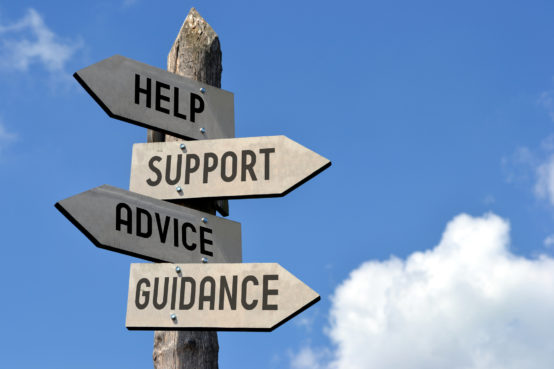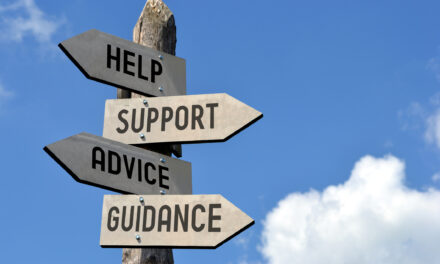Q: I’m an elementary school teacher who is viewed as “sweet,” “easygoing,” “flexible” — all the adjectives you think of when you picture someone who doesn’t rock the boat. I pick up others’ slack, whether it’s bus duty or getting a card for the principal’s birthday or covering an absent teacher’s class during my free period. I’m the “Hey, Linda, would you mind?” pushover. Yes, they ask because I’m friendly and agreeable. But on the inside . . . I’m SEETHING. Maybe it’s turning 40, maybe it’s the cumulative effect of years and years of getting taken advantage of with no one returning the favor, maybe it’s that my colleagues aren’t particularly inclusive or nice to me the rest of the time. I feel totally used and PISSED. People would be shocked that I’m so angry inside, because the most I ever do is awkwardly laugh off their rudeness. They talk in front of me like I’m invisible. Or they ignore me in the hall but greet their friends. It hurts, and then I feel sensitive and forget how to have a normal conversation. I don’t think anyone wants to feel like a doormat, and that’s exactly how I feel. I know that you’ll probably tell me to focus on my friends and life outside of work, but I already do and it’s not enough for me anymore. I want to know how to say no and mean it. I want to stop being meek, stop caring when my colleagues brush me off like I don’t matter, and I want to make it hard for people to walk all over me. Or at least call them out when they do. How can I stop being a total loser doormat?
A: First, stop calling yourself a total loser doormat. It’s hard to demand that others treat you with respect when you don’t treat yourself with respect. Plus, this isn’t a character issue. If you make this about your failings as a human being, change will feel impossible. That attitude may lead you to conclude, “What’s the point? This is who I am.” Instead, focus on your skill deficits. You’d like to be more direct and assertive — to make your presence and your feelings known. You also want to be less impacted by others’ rudeness. Those are reasonable goals, but they will take some time to achieve.
Why? Social dynamics are complex. When we perceive threat, we become more awkward. Our social skills literally take a nosedive. We tend to assume people struggle socially because they’re awkward, but the reverse also is true. Even emotionally intelligent people become less adept at reading scenarios and interpreting feedback when they feel they’re under attack. You can start by neutralizing the perceived threat. Let’s use the specific one you mentioned — a colleague ignoring you in the hall. Feelings are involuntary, but if you challenge the thoughts that created them, you can alter your behavior. So ask yourself some questions: “A week from now, looking back on the situation, will I still think it’s a big deal?” “Is this someone whose opinion I value?” “How much does this matter in the scheme of things?” “Do the people I truly care about treat me with respect?” If you can depersonalize the snub, you’ll be less likely to freeze or react clumsily. You may even be able to look the person in the eye and address them. It’s a lot harder to ignore someone who greets you directly.
Beyond the awkwardness, you’re risk-averse, especially when it comes to social conflict. It’s easier for you to mollify or please others than to assert your interests. To build your capacity for risk-taking, practice advocating for yourself in less fraught settings. That might mean sending back uncooked food in a restaurant or firmly telling a telemarketer you’re not interested in talking to them. The more often you state your needs, the more you’ll build that muscle. To activate confidence, change your body language, too. Stand with your feet planted apart and your chin tilted up. You don’t have to believe you’re powerful to pose expansively, and it may mentally nudge you in the right direction. Beyond the awkwardness, people’s voices get higher when they feel threatened, so try to lower your pitch when you’re ready to say what you want. Turn toward the person and get straight to the point. Say, “I can’t cover for you,” or “I don’t have time to pick up a card.” Acting with agency will give you a greater sense of empowerment and lessen your rage.
For more Career Confidential: http://bit.ly/2C1WQmw
Have a question that you’d like Career Confidential to answer? Email contactphyllisfagell@gmail.com. All names and schools will remain confidential. No identifying information will be included in the published questions and answers.
ABOUT THE AUTHOR

Phyllis L. Fagell
Phyllis L. Fagell is the school counselor at Landon School in Washington, D.C., a therapist at the Chrysalis Group in Bethesda, Md., and the author of the Career Confidential blog. She is also the author of Middle School Matters and Middle School Superpowers, available at https://amzn.to/3Pw0pcu.












